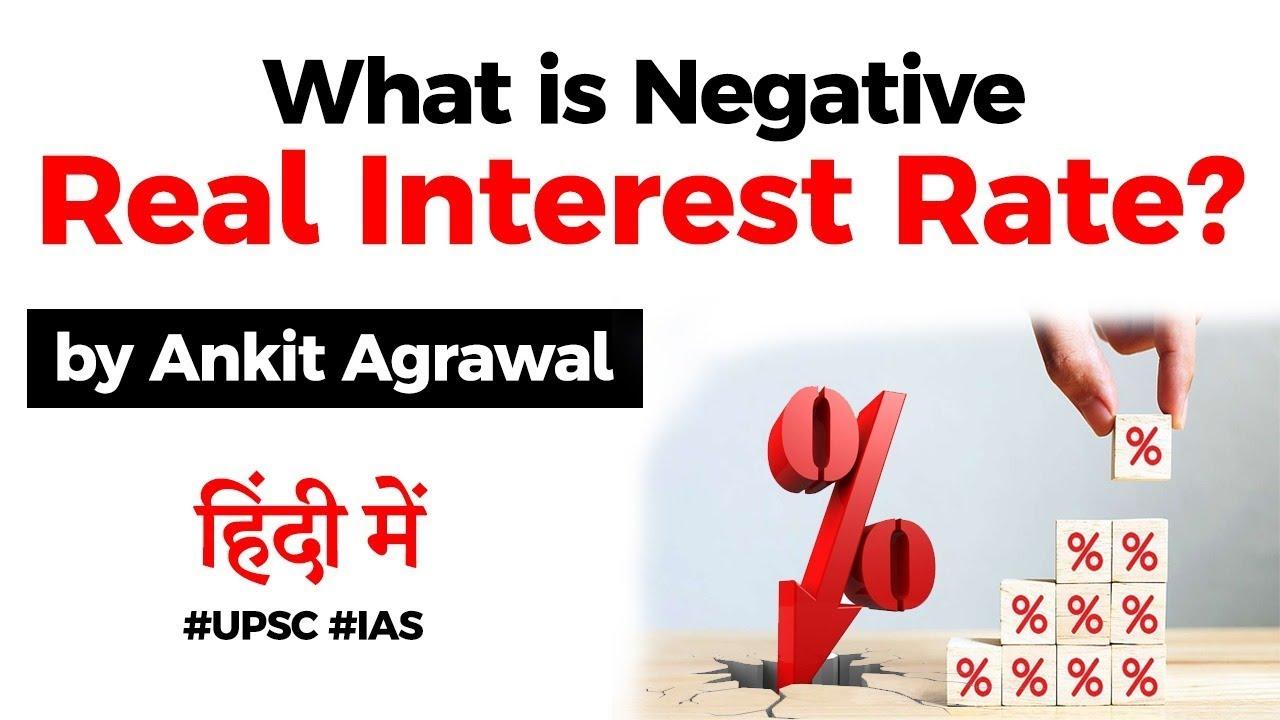Table of Contents
Introduction
- The Consumer Price Index-based (CPI) inflation that was declared for the month of June, after a two-month gap can put the Reserve Bank of India (RBI) in a sticky spot.
- The June CPI inflation coming in at 09%, higher than the RBI’s comfort zone (of 4%)

- High inflation coupled with low interest rates, have led to negative real rates for some time now.
Nominal Interest Rates
- Nominal interest rates are the rate of return which an investor or borrower will get or have to pay in the market.
- For example: if you have deposited Rs.100 in your bank account and your bank is offering a 5% per annum interest rate, you will have Rs.105 in your account by end of the year.
Real Interest Rates
- When nominal interest rate is adjusted for inflation, it becomes real interest rate.
- g. if the inflation is 3% per annum, it means that goods and services which we can buy at Rs.100, we have to pay Rs.103 now for the same amount of goods and services.
- So effectively, we have earned only Rs.2
- Between December 2019 and February 2020, CPI was in the range of 6-7.35 per cent.
- The repo rate at 5.15%, had implied 140-240 basis points (bps) negative real rates.


But things changed after COVID
- With the repo rate falling to 4 per cent and CPI inflation moving up,
- Negative real rates could persist for a longer time.
So why it’s a worry for RBI?
- With inflation set to trend higher in the coming months,
- The RBI could hit the pause button in the upcoming August policy,
- After having cut the repo rate by 115 bps so far this year.
- But given the extraordinary demand destruction and underlying weak economic growth amid the pandemic crisis,
- The RBI is likely to continue its easing policy over the medium term.
Latest Burning Issues | Free PDF






















 WhatsApp
WhatsApp